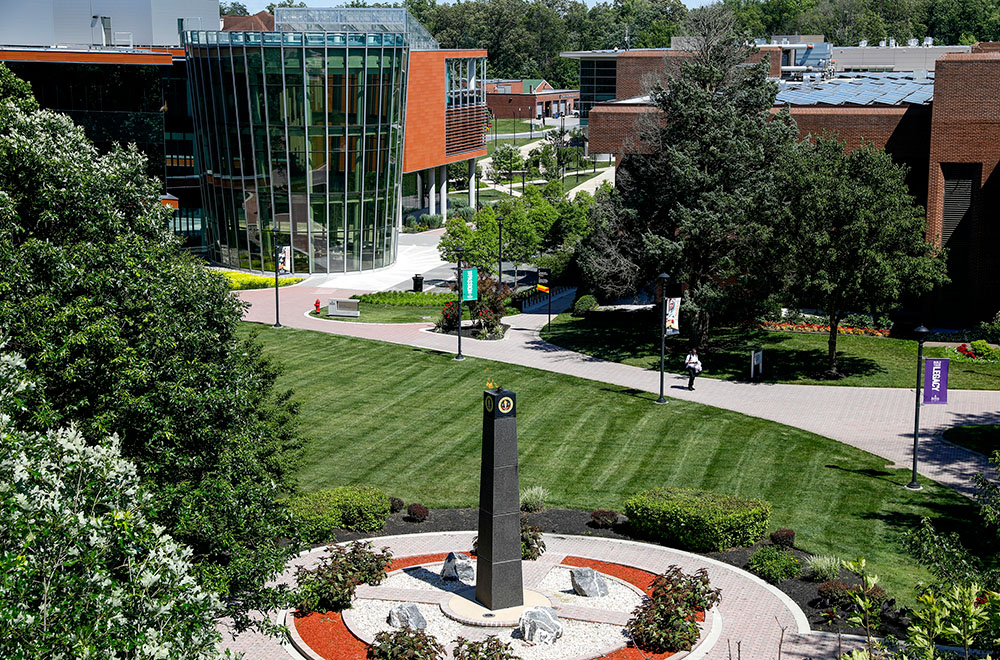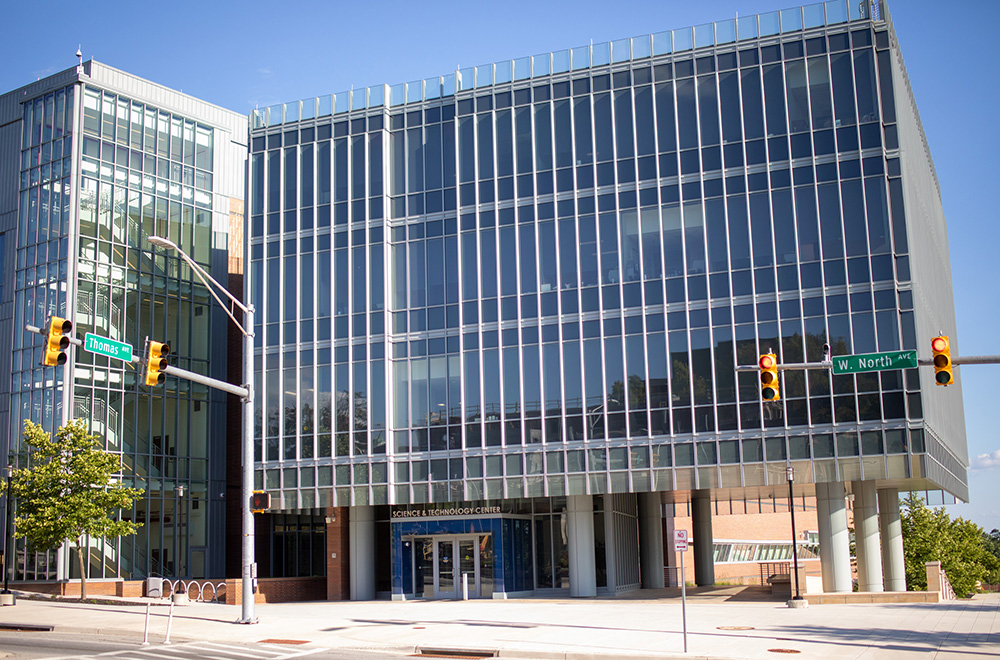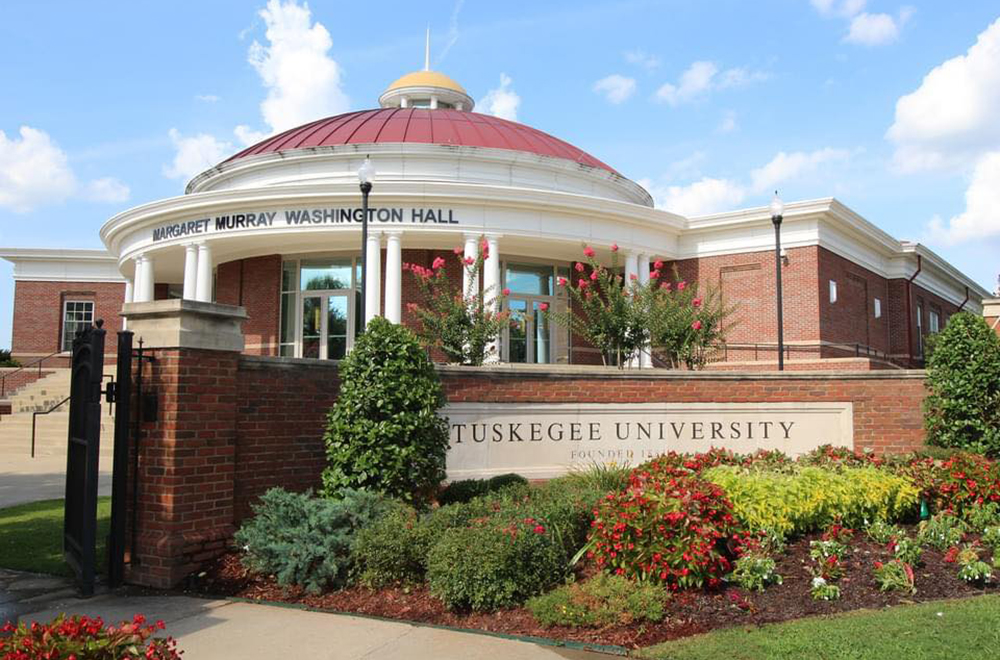NIST
JHU
Consortium Universities
 Baltimore, Maryland
Baltimore, Maryland
Founded in 1876, Johns Hopkins University (JHU) was the nation’s first research university. Today it remains a leader in education and research, attracting the most highly qualified and driven undergraduate, graduate, and professional students to its eight academic divisions and the Applied Physics Laboratory (APL). JHU comprises approximately 4,700 faculty members, as well as 6,000 undergraduates and 18,000 graduate students who study under the auspices of ~264 degree programs at the baccalaureate, master, and doctoral levels.
According to the latest U.S. News & World Report’s (USNWR) 2022 rankings of graduate programs, JHU’s Schools of Public Health and Nursing rank first in the nation and the School of Medicine is tied for third in the list of research-oriented medical schools, making it one of the world’s preeminent academic health sciences centers. JHU’s undergraduate program – housed primarily in the Krieger School of Arts and Sciences (KSAS) and Whiting School of Engineering (WSE) – is 7th on the list of top national universities. In the science, technology, engineering, and mathematics (STEM) fields, KSAS and WSE have 17 academic departments and over 20 research centers and institutes.
For more information, contact:
JHU Centers and Institutes related to NIST include:
 Baltimore, Maryland
Baltimore, Maryland
Founded in 1867, Morgan State University (MSU) offers a comprehensive range of academic programs in engineering and natural sciences, and currently enrolls more than 9,500 undergraduate and graduate students. The School of Engineering (SoE) has approximately 940 students enrolled and the School of Computer, Mathematical and Natural Sciences (SCMNS) has 1,375 students enrolled. According to U.S. News & World Report’s (USNWR) 2022 rankings, MSU is ranked 12th on the list of HBCU’s, and is the only university in the state of Maryland to offer undergraduate and graduate degrees in industrial and systems engineering, or a degree (PhD) in bioenvironmental sciences. The SoE also recently added degree programs in Mechatronics Engineering (BS) and Secure Embedded Systems (PhD).
For more information, contact:
John Brandeau, PhD
Director for Research Administration Operations
Division of Research and Economic Development
Morgan State University
john.brandau@morgan.edu
Visit the University’s website at:
Learn more about MSU NIST PREP and the HBCU Hub at:
 Binghamton, New York
Binghamton, New York
Founded in 1946, Binghamton University (BU) is one of the premier public research universities, ranking 35th among a list of top public schools according to U.S. News & World Report’s (USNWR) 2022 list. BU has a well-established research infrastructure to support the training and research activities of undergraduate and graduate students (about 18,000 students total), as well as post-doctorate researchers. The Thomas J. Watson College of Engineering and Applied Sciences (WCEAS) consists of five departments: Biomedical Engineering, Mechanical Engineering, Computer Science, Electrical and Computer Engineering, and System Science and Industrial Engineering. WCEAS is also the home for various research centers, including the Small-Scale Systems Integration and Packaging Center (S3IP), Center for Advanced Microelectronics Manufacturing (CAMM), Center for Autonomous Solar Power (CASP), Center for Energy-Smart Electronic Systems (ES2), Integrated Electronics Engineering Center (IEEC), and Watson Institute for Systems Excellence (WISE).
For more information, contact:
Kaiming Ye, PhD
Professor and Chair, Department of Biomedical Engineering
Director, Center of Biomanufacturing for Regenerative Medicine
Binghamton University, State University of New York
kye@binghamton.edu
Visit the University’s website at:
 Bowie, Maryland
Bowie, Maryland
Founded in 1865, Bowie State University (BSU) is the oldest HBCU institution in Maryland committed to providing more than 6,300 students with access to a high quality education in an environment that focuses on student success. BSU is a Maryland leader in producing graduates in science and technology fields and is ranked at #18 on the U.S. News & World Report (USWNR) 2022 list of top HBCUs in the nation. Recognized for its excellence in cybersecurity education and research, BSU has been designated by the National Security Agency (NSA) and Department of Homeland Security (DHS) as a National Center of Academic Excellence (CAE) in Cyber Defense Education since 2009. Bowie State offers a growing array of academic programs at the bachelor’s, master’s and doctoral levels with a focus on infusing entrepreneurial thinking across the curriculum to help all students develop a mindset for innovation and creative problem-solving. BSU’s noteworthy collaboration with the Howard-led University Affiliated Research Center (UARC) aligns with the endeavors of our diverse faculty-led research labs, which provide unparalleled opportunities for both undergraduate and graduate students. These labs – Autonomous Technologies Lab, Center for High-Performance Information Processing, CYPHER Lab, Data Analytics Lab, Security and Optimization of Stochastic Systems (SOPSS) Lab, Big Data and Blockchain Technologies Research Lab, Computational Perception and Animation Lab, and Cyber Security Applications Lab – provide a bedrock for fostering innovation and immersive learning.
For more information, contact:
Rosemary Shumba, PhD
Chair and Professor, Department of Computer Science
Bowie State University
rshumba@bowiestate.edu
Learn more about BSU Computer Science at:

 Baltimore, Maryland
Baltimore, Maryland
Founded in 1900, Coppin State University (CSU) offers 33 undergraduate and 14 graduate degrees, along with 14 certificate programs and one doctorate. CSU prepares its students to be competitive in regional and global markets through its commitment to quality programs. The student body is comprised of approximately 2,006 students, ~1,760 of which are undergraduate and ~250 of which are graduate. The new state-of-the-art Science and Technology Center (STC) houses undergraduate and graduate STEM programs and provides facilities for cutting-edge research in various science disciplines. Some of the research centers and laboratories include Nanotechnology center, Laboratory for Emerging Contaminants, Center for Organic synthesis, and Laboratory for ophthalmic research. In the 2022 Best Colleges rankings by U.S. News & World Report (USNWR), CSU was listed as the #35 top HBCU in the nation.
For more information, contact:
Mintesinot Jiru, PhD
Professor and Chair, Department of Natural Sciences
Coppin State University
MJiru@Coppin.edu
For more information about CSU programs related to NIST, visit:

 Greensboro, North Carolina
Greensboro, North Carolina
North Carolina Agricultural and Technical State University (NC A&T) is the nation’s largest HBCU, with approximately 1000 tenured/tenure-track faculty and a student population size of ~12,000 undergraduates and ~1,650 graduates (~13,650 students total). In its 2022 ranking of top HBCUs in the nation, U.S. News & World Report (USNWR) listed NC A&T in the #9 ranking. With an emphasis on preeminence in STEM, NC A&T leads the NCLSAMP SPRA, which seeks to increase the quality and quantity of students successfully completing STEM degree programs with eight University of North Carolina System institutions. NC A&T is home to the Joint School of Nanoscience and Nanoengineering which houses the NSF Southeastern Nanotechnology Infrastructure Corridor (SENIC) – a core-facility with over 100 research instruments designed for molecular, nanoscale, and microscale materials characterization.
For more information, contact:
Sherine O. Obare, PhD
Dean, Joint School of Nanoscience and Nanoengineering
Professor of Nanoscience and Nanoengineering
North Carolina A&T State University
soobare@ncat.edu
For more information about the Joint School of Nanoscience and Nanoengineering, visit:

 Tuskegee, Alabama
Tuskegee, Alabama
Tuskegee University is an independent and state-related institution of higher education. With a strong orientation toward disciplines which highlight the relationship between education and work force preparation in the sciences, professions and technical areas, Tuskegee University also emphasizes the importance of the liberal arts as a foundation for successful careers in all areas. Accordingly, all academic majors stress the mastery of a required core of liberal arts courses. The academic programs are organized into five colleges and three schools: The curricula for these colleges and schools currently offer over 50 degrees including 39 Bachelor’s, 18 Master’s, 5 Doctor’s of Philosophy: Materials Science and Engineering, Integrative Biosciences, Integrative Public Policy & Development, Interdisciplinary Pathobiology and the Doctor of Veterinary Medicine. Tuskegee University is located in Tuskegee, Alabama, which is 40 miles east of the Alabama State Capitol in Montgomery, Alabama, and 20 miles west of the city of Auburn, Alabama. It is also within easy driving distance to the cities of Birmingham, Alabama and Atlanta, Georgia.
For more information, contact:
Vijaya Rangari, PhD
Interim Associate VP for Research
Professor, Materials Science and Engineering
Tuskegee University
vrangari@tuskegee.edu
Visit the University’s website at:

The University of Maryland Eastern Shore (UMES) is a teaching, research, and doctoral institution that nurtures and launches leaders in a student-centered environment. Committed to providing high quality programs, the University prepares students who will serve and shape the economy. UMES is a growing, primarily residential university with a mission focused on learning, discovery, and engagement. This is consistent with valuing the scholarship of faculty in discovering new knowledge, and disseminating and applying it to the extended community. The University recognizes its responsibility for developing human potential, enriching cultural expressions, and sharing its expertise with individuals, businesses, educational, governmental, and non-governmental organizations. These aspirations are in accordance with UMES’ legacy and mission as Maryland’s 1890 Land-Grant Institution.
For more information, contact:
LaKeisha Harris, PhD
Dean, School of Graduate Studies and Research
University of Maryland Eastern Shore
llharris@umes.edu
Visit the University’s website at: